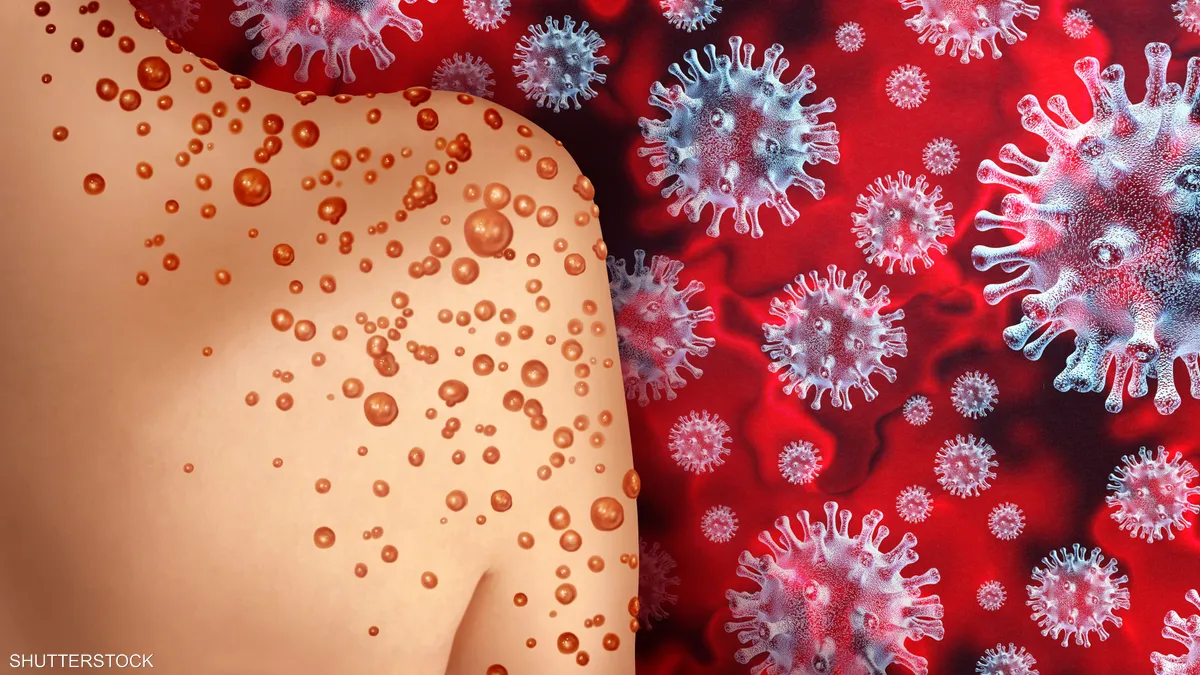The World Health Organization recently declared the monkeypox outbreak a “global health emergency,” with confirmed cases among children and adults in more than 12 countries, and the spread of a new strain of the virus.
Earlier in the week, the Africa Centres for Disease Control and Prevention announced that the monkeypox outbreak constitutes a public health emergency, after more than 500 deaths, and called for international assistance to stop the spread of the virus.
The Director-General of the World Health Organization, Tedros Adhanom Ghebreyesus, said: “This is something that should concern us all… The possibility of its spread outside Africa and beyond is very worrying.”
What is Monkeypox?
Monkeypox is a disease caused by a zoonotic virus, meaning it can be transmitted from animals to humans, and it also spreads between people.
The disease is called “monkeypox” because it was first identified in colonies of monkeys kept for research in 1958. It was only later discovered in humans in 1970.
Monkeypox, which affects most age groups, does not spread easily among people, and most people recover within a few weeks. In most cases, the symptoms of the disease disappear on their own within a few weeks, but in some individuals, symptoms can lead to medical complications.
In newborns, children, and immunocompromised individuals, these groups are at risk of more serious symptoms, according to the World Health Organization.
How does the virus spread?
The incubation period between infection and the appearance of symptoms usually ranges from 5 to 21 days, while disease symptoms can last from 2 to 4 weeks.
The monkeypox virus is transmitted to humans from a variety of wild animals through direct contact with the blood, body fluids, skin lesions, or mucous membranes of the infected animal or by consuming undercooked meat from an infected animal.
Monkeypox can be contracted through close physical contact with someone showing symptoms, such as skin rash and body fluids (such as fluids, pus, or blood from skin lesions).
The virus can also spread from a pregnant woman to the fetus through the placenta, or from an infected parent to a child during or after birth through skin-to-skin contact.
Prevention of Monkeypox
- Avoid contact with people who are suspected or confirmed to have monkeypox.
- Avoid touching infected animals, whether alive or dead, or any tools belonging to the sick animal.
- Clean your hands regularly with soap and water or an alcohol-based hand sanitizer, especially after touching the infected person and their clothes, bedding, towels, and other items or surfaces they have touched or that may have touched their rash or respiratory secretions, such as utensils and dishes.
- Wear a mask, especially if the person is coughing or has lesions in their mouth.
- If you need physical contact with a person infected with monkeypox because you are a health worker or live with the infected person, encourage the infected person to isolate themselves and cover any skin lesions if possible, for example, by wearing clothes over the rash.
- Wash the infected person’s clothes, towels, bedding, and eating utensils with warm water and detergents. Clean and disinfect any contaminated surfaces and dispose of contaminated waste, such as bandages, thoroughly.
- Make sure to cook meat properly before eating.
Symptoms of Monkeypox
- Fever
- Muscle aches
- Back pain
- Headache
- Swollen lymph nodes
- Skin rash that begins 1-3 days after fever
Symptoms usually last between two to four weeks and disappear on their own without treatment. If you think you have symptoms that could be monkeypox, seek advice from your healthcare provider and tell them if you have been in close contact with someone suspected or confirmed to have monkeypox.
Treatment of Monkeypox
- Monkeypox symptoms often heal on their own without the need for treatment, and symptoms usually disappear within 2-4 weeks.
- It is important to care for the rash by letting it dry if possible or covering it with a moist dressing to protect the area if necessary.
- Supportive care and symptom management remain the main and current way to deal with the disease.
